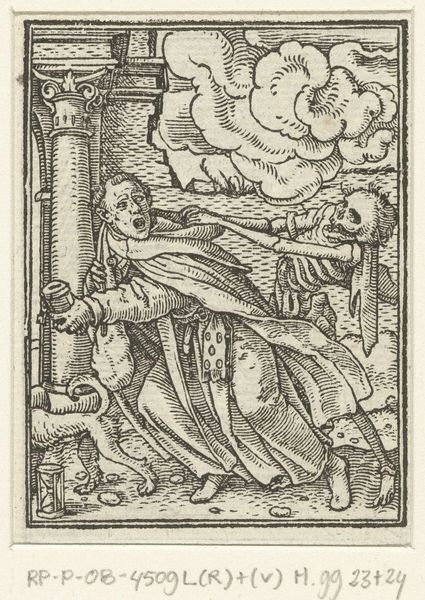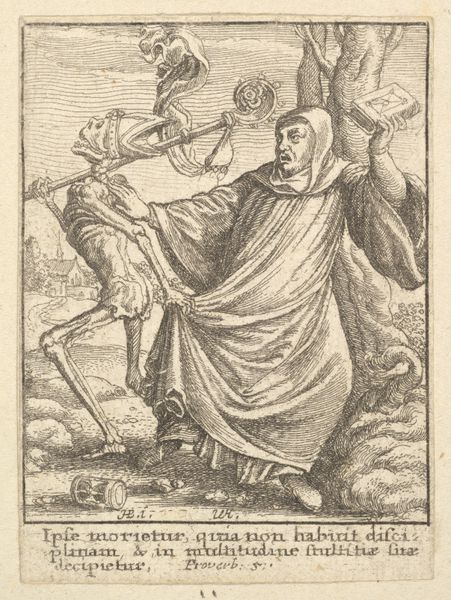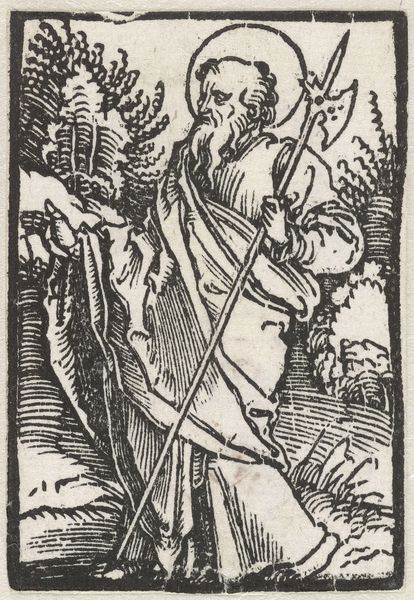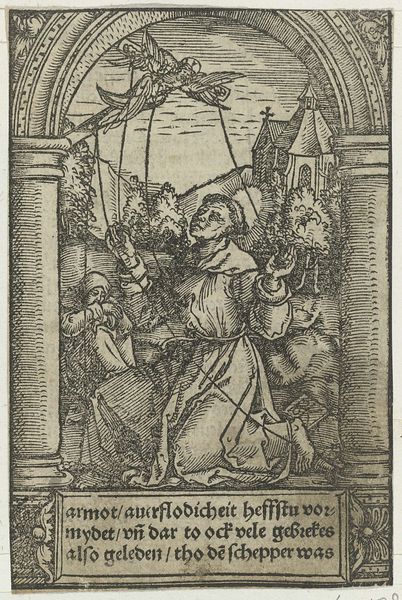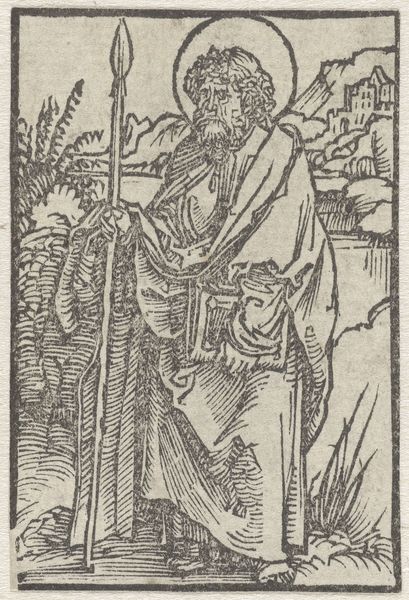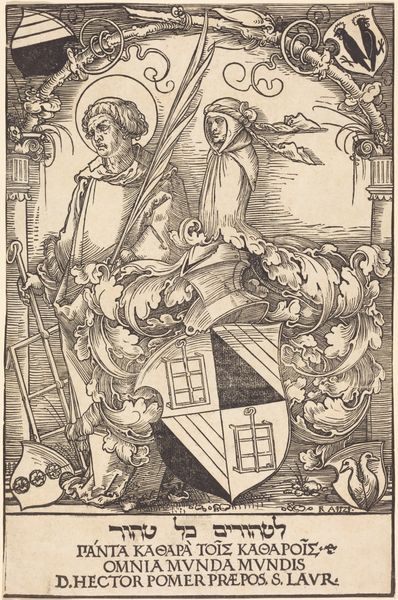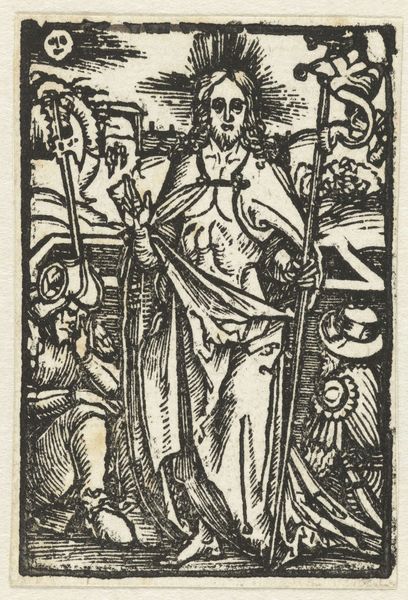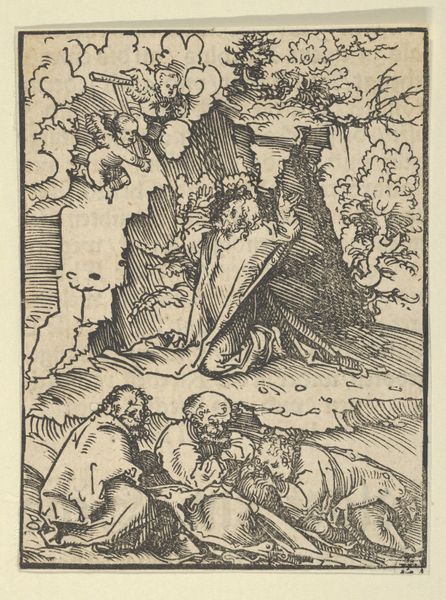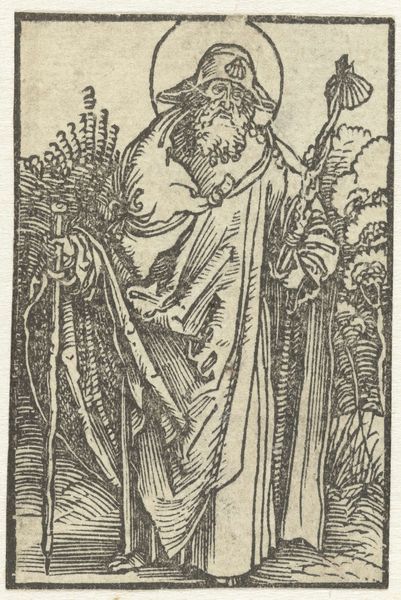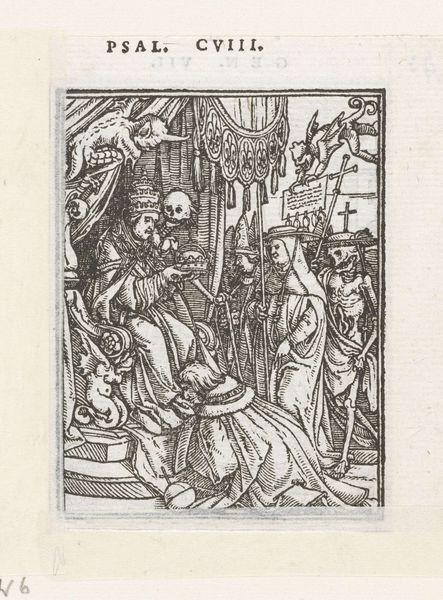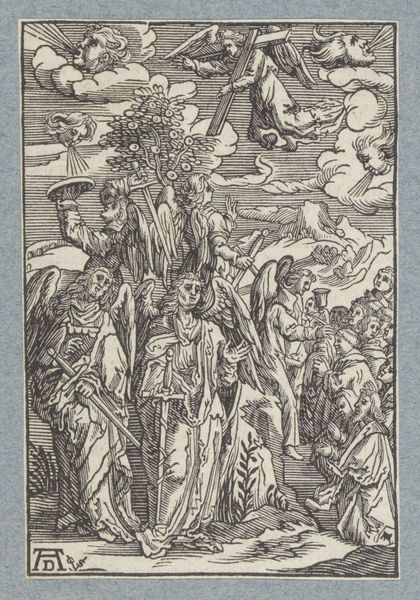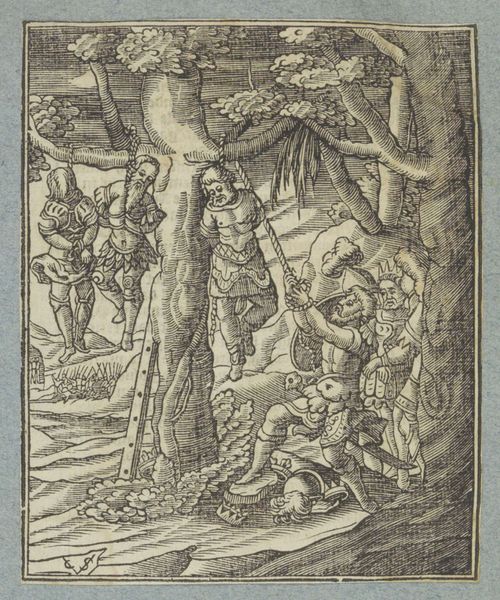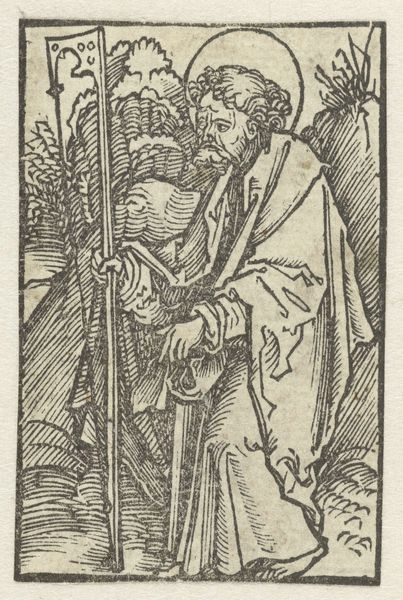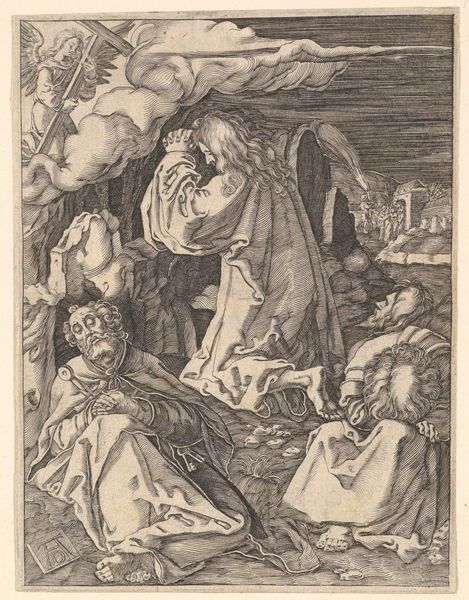
print, woodcut
#
allegory
# print
#
figuration
#
11_renaissance
#
woodcut
#
northern-renaissance
Dimensions: height 65 mm, width 50 mm
Copyright: Rijks Museum: Open Domain
Hans Holbein II created this woodcut titled "Abt en de Dood als bisschop" sometime before his death in 1543. Holbein’s Dance of Death series encapsulates the societal anxieties surrounding mortality during the Renaissance, a period marked by religious reformation and devastating plagues. In this particular image, Holbein critiques the corruption within the Church, presenting death as an imposing figure come to claim an abbot. Emphasizing the universality of death, Holbein’s series doesn't discriminate by social status. However, this work adds a layer of commentary on power and morality, suggesting that even the most religious figures cannot escape earthly demise, in their finery. There's a distinct emotional narrative at play: observe the abbot's wide eyes expressing fear and denial. Juxtapose this with the skeleton dressed in the bishop’s mitre. Holbein challenges the traditional representations of religious authority, presenting an alternative narrative where death is the ultimate leveler. Holbein masterfully uses the print medium to make profound statements about life, death, and the societal structures of his time. The emotional weight of confronting one's mortality is a theme that continues to resonate today.
Comments
No comments
Be the first to comment and join the conversation on the ultimate creative platform.
